Search
Did you mean: Kali?
Summary 
Loading AI-generated summary based on World History Encyclopedia articles ...
Search Results

Definition
Ali ibn Abi Talib
Ali ibn Abi Talib, or simply Ali, (l. 601-661 CE) was among the first Muslims, a cousin and son-in-law of the Islamic Prophet Muhammad (l. 570-632 CE), and later reigned as the fourth Caliph of Islam from 656 CE to 661 CE, when he was murdered...
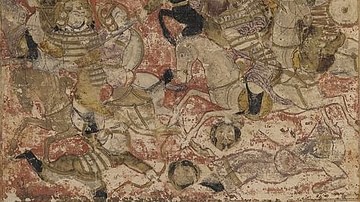
Definition
First Fitna
The First Fitna (656-661 CE) was the first civil war of the Islamic Empire fought between the fourth Rashidun Caliph, Ali ibn Abi Talib (656-661 CE), and the governor of Syria, Muawiya (later Muawiya I; r. 661-680 CE). Deep fissures divided...

Definition
Fatimah bint Muhammad
Fatimah (born between 605 and 615 CE, died sometime in 632 CE; date of death is disputed) was the youngest daughter of the Islamic Prophet Muhammad (l. 570-632 CE) and his first wife Khadija (l. 555-619 CE). Taking up after her father, Fatimah...

Definition
Rashidun Caliphate
The first four caliphs of the Islamic empire – Abu Bakr, Umar, Uthman, and Ali are referred to as Rashidun (rightly guided) Caliphs (632-661 CE) by mainstream Sunni Muslims. Their tenure started with the death of Prophet Muhammad in 632 CE...
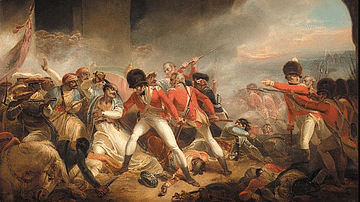
Definition
Anglo-Mysore Wars
The Four Anglo-Mysore Wars (1767-1799) were fought between the British East India Company (EIC) and the state of Mysore. Haidar Ali and his son Tipu Sultan, the "Tiger of Mysore", were relentless foes to British expansion in southern India...
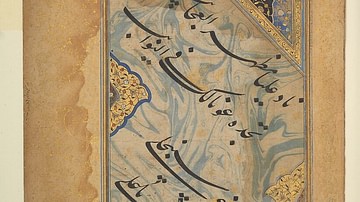
Image
Album Leaf with Nad-e Ali Prayer
The Nad-e `Ali is a Shia and Sufi prayer (du`a) that reads as follows: Nad-e `Aliyan, Call Ali Mazhar al-Ajaib, Who is the manifestor of wonders Tajidahu Aunan Laka fi Nawib You will find him (to be) your helper in diffciulties Kulu Hamim...
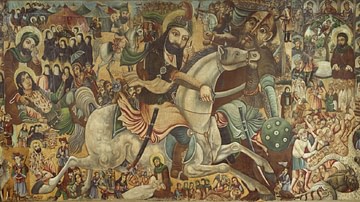
Article
Battle of Karbala
The Battle of Karbala (10 October 680 CE) was a small-scaled military engagement, fought near the river Euphrates, in modern-day Iraq, which saw the massacre of heavily outnumbered Alid troops under the command of Husayn ibn Ali (l. 626-680...
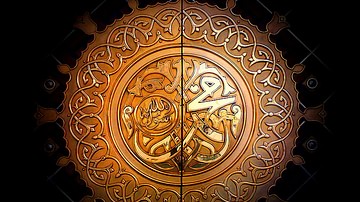
Definition
Islam
Islam is an Abrahamic-monotheistic religion based upon the teachings of Prophet Muhammad ibn Abdullah (l. 570-632 CE, after whose name Muslims traditionally add “peace be upon him” or, in writing, PBUH). Alongside Christianity and Judaism...
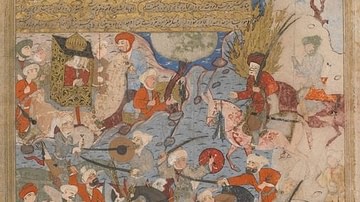
Image
Ali & Aisha at the Battle of the Camel
A painting from manuscript of the "Rawdat al-safa" (Persian for "Gardens of Purity") made in Iran c. 1571 - 1572 CE. The painting depicts Ali (r. 656 - 661 CE) and Aisha (c. 613 - 678 CE), who led the opposing factions at the Battle of the...

Definition
Islamic Caliphates
Caliphate (“Khilafat” in Arabic) was a semi-religious political system of governance in Islam, in which the territories of the Islamic empire in the Middle East and North Africa and the people within were ruled by a supreme leader called...